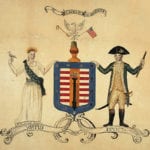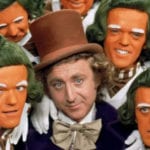 Travel
Travel  Travel
Travel  Weird Stuff
Weird Stuff 10 Weird Stories Missing People Told When They Were Found
 Miscellaneous
Miscellaneous 10 Greatest Corporate Faceplants of All Time
 Our World
Our World 10 Times Eclipses Marked History
 Animals
Animals Ten Peculiar Times That Scientists Tried to Talk to Animals
 Humans
Humans 10 Societies with Unconventional Concepts of Time
 Travel
Travel 10 Terrifying Ways to Take in the View
 Religion
Religion 10 Outrageous Acts Committed by Renaissance Popes
 Music
Music Top 10 Acts of the Aussie Pop Music Invasion
 Space
Space 10 Incredible Scenes of Cosmic Violence
 Travel
Travel 10 Pilgrimages Around the World That Aren’t Religious
 Weird Stuff
Weird Stuff 10 Weird Stories Missing People Told When They Were Found
 Miscellaneous
Miscellaneous 10 Greatest Corporate Faceplants of All Time
Who's Behind Listverse?

Jamie Frater
Head Editor
Jamie founded Listverse due to an insatiable desire to share fascinating, obscure, and bizarre facts. He has been a guest speaker on numerous national radio and television stations and is a five time published author.
More About Us Our World
Our World 10 Times Eclipses Marked History
 Animals
Animals Ten Peculiar Times That Scientists Tried to Talk to Animals
 Humans
Humans 10 Societies with Unconventional Concepts of Time
 Travel
Travel 10 Terrifying Ways to Take in the View
 Religion
Religion 10 Outrageous Acts Committed by Renaissance Popes
 Music
Music Top 10 Acts of the Aussie Pop Music Invasion
 Space
Space 10 Incredible Scenes of Cosmic Violence
10 Political Candidates No One Thought Would Win
“Unelectable”—that word is meant as a death knell for any political candidate. It shows that they’re out of touch with the common man, too extreme, or simply too weird to win high office. You frequently hear it bandied around today in reference to people like Donald Trump and Bernie Sanders. In short, it means they’re politically doomed.
Or are they? Despite what pollsters and pundits would have you believe, “unelectable” is an extremely nebulous concept. Trawl through the history books, and you’ll find plenty of presidents and prime ministers who won elections that everyone thought they were destined to lose.
10 Margaret Thatcher Was Considered A Toxic Extremist
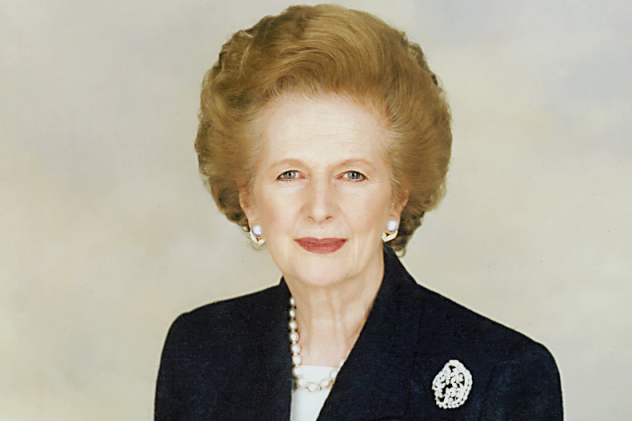
By most measures, Margaret Thatcher was one of Britain’s most successful prime ministers (and also one of the most divisive). She won three elections in a row, ruling from 1979 to 1990. She transformed Britain’s post–World War II center-left consensus into a center-right one. None of this should have happened. When she was made leader of the Conservative Party in 1975, Thatcher was considered so toxic that her ascension was compared to a right-wing Trotskyite coup.
At the time, British politics were firmly center-left. Even the Conservatives supported welfare programs and staggeringly high tax rates, and the idea of privatizing national industries was considered ridiculous. Thatcher was one of the few politicians to openly support what we’d now call neo-liberal economic policies. In the mid-1970s, that made her a far-right extremist.
As a result, no one thought she would ever win an election. Her own party frantically tried to depose her and replace her with someone more electable. As late as fall 1978, around six months before the election, it was assumed that a Labour Party victory was inevitable.
Unfortunately for Labour, the end of 1978 was disastrous. Seemingly every public worker in the country went on strike. Trash piled up in the streets. Dead bodies went unburied. The months before the election became known as The Winter of Discontent. Support for Labour plummeted, handing the “extremist” Thatcher an unexpected victory. Thatcher then went on to repeat this victory two more times.
9 Harry Truman Was Obscenely Unpopular
The first time he went to the polls in 1948, Harry Truman seemingly had the advantage. Having been president for three years after taking over when FDR died, Truman could expect to benefit from the incumbency effect, a noted quirk of elections whereby the incumbent tends to pick up extra votes simply for being president.
However, even this didn’t seem like it’d be enough to save his skin. In 1948, Americans hated Truman. They hated him with a passion that’s almost frightening. As unpopular as Obama was in 2012, he was still seen as being in a tight race. Pollsters in 1948 thought Truman’s Republican rival, Thomas E. Dewey, would mop the floor with him. At their most favorable to Truman, polls showed him losing by 5 percentage points. At their worst, they suggested he could lose by 15, a defeat which would have made Ronald Reagan’s landslide against Jimmy Carter pale in comparison.
The Chicago Tribune was so sure of a Truman defeat that they ran their first edition of their morning paper with the headline “Dewey Defeats Truman.” Hilariously, this complacency was probably what caused Truman’s victory. Democrats, fearing a massive defeat, voted in droves. Republicans, expecting an easy victory, stayed home and played golf.
8 Nobody Had Ever Heard Of Jimmy Carter
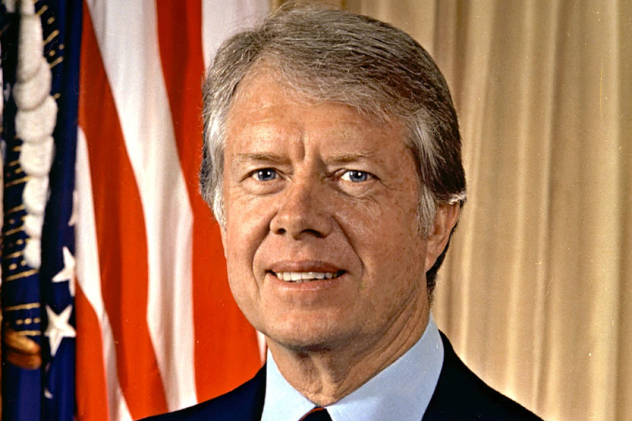
Not all long-shot candidates are considered unelectable due to their views or popularity. Some are simply so obscure that most of the electorate has never even heard of them. In 1976, that candidate was Jimmy Carter.
A one-term governor and peanut farmer, Carter’s name recognition outside of Georgia was effectively zero. When he announced that he was running, senior Democrats basically fell about laughing. A New York Times report from the period quotes party grandees dismissing Carter’s run as “an absurdity.” Polling at the beginning of the campaign season put Carter in 12th place to win the Democratic nomination, behind people like Mo Udall and Julian Bond. Even other people you’ve probably never heard of were considered more popular than the future president.
In fact, Carter’s name was estimated to carry recognition value with only 30 percent of the Democratic electorate. From January to June 1975, he was polling around 1 percent.
Yet Carter managed to make it work to his advantage. With no clear front-runner, the Democrats were stuck for a candidate. As his rivals fought it out, Carter concentrated on meeting voters in twos and threes, and eventually, good word began to spread. It also helped that the Republicans were fielding a candidate who’d never won an election and had recently pardoned the extremely unpopular Richard Nixon. Even so, Carter barely squeaked to victory.
7 John Major Was A Disaster With No Charisma
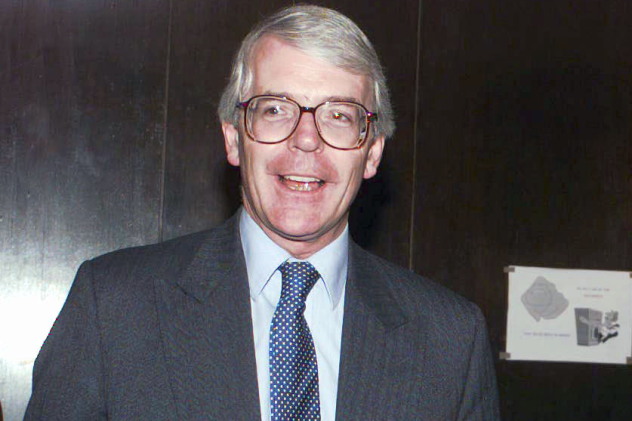
In 1992, John Major delivered the UK Conservative party a stunning victory. Under his stewardship, the party won the highest share of the popular vote ever recorded in a UK election (although the quirks of UK politics meant that it only translated into a 22-seat majority). With such an achievement, you might assume that Major was the clear front-runner. You’d be wrong.
Although he was the incumbent prime minister, having taken over without an election when Thatcher was forced to retire, Major was considered a PR disaster. He was such a colorless person that the leading satirical show of the time portrayed him as a gray-skinned man in gray-colored clothes. There were also concerns that Thatcher was using him as a puppet to further her agenda from behind the scenes. Add to that a recent economic meltdown, and Major’s general haplessness made him seem a liability.
He was also fairly unpopular. The polls were all pointing toward a Labour party victory, to the extent that party leader Neil Kinnock held what was widely seen as a victory rally in Sheffield the week before the election.
But the victory never materialized. Voters awoke the morning after the election to a Conservative government. In the decades since, something known as the “shy Tory effect” has been blamed. Because Major was portrayed as such a train wreck, people were shy about admitting to pollsters that they planned to vote Tory. Alone in the voting booth, though, they simply plumped for Major, handing him his unexpected victory.
6 James Polk Voted For His Own Rival
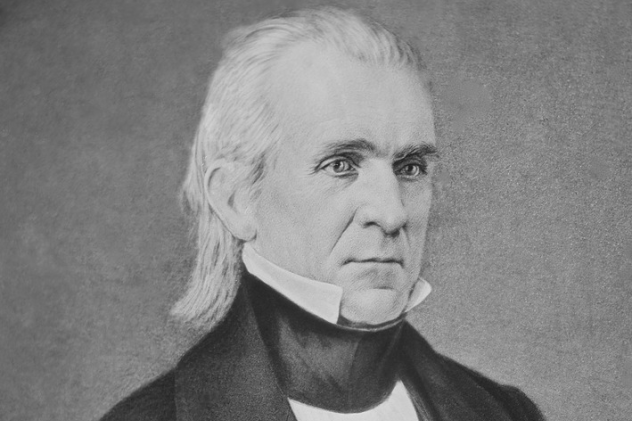
James Polk had one of the most interesting tactics for winning the US presidency that you’ve ever heard of. At the 1844 Democratic convention, Polk threw his support behind his own rival, front-runner Van Buren. That’s how unlikely a Polk presidency was seen as at the time; Polk himself was content to endorse the other guy.
The only reason Polk got the nomination was because Van Buren took a firm moral stance that sadly constituted a massive blunder. He opposed the annexation of Texas at a time when taking Texas was seen as advancing the cause of slavery. This lost him the support of Southern Democrats. His delegates defected to pro-annexation Polk, and Van Buren lost his shot at the top spot.
At the time, the Whigs thought this was the greatest gift they could get. Polk was even less known than Jimmy Carter was in 1975. The Whigs’ entire campaign essentially revolved around them repeatedly asking “Polk who?” and hoping that the public would find this funny. Unfortunately for them, Polk was a good stump speaker with a cunning team, and he smeared his opponent’s positions. His eventual victory popularized the term “dark horse candidate,” now used to refer to guys like Bernie Sanders who appear from nowhere and become serious challengers.
5 Clement Attlee Thought His Rival Would Win
During the 1945 general election, Britain was emerging from the shadow of a devastating war. Winston Churchill had just guided the country through its darkest hour and was running to be prime minister again. Against the charismatic orator and colossus of world politics, the Labour party fielded a small, timid man known as Clement Attlee.
Although he’d been part of Churchill’s wartime coalition government and had earned the great man’s respect, most people knew Attlee as a mouse-like charisma void. Churchill cruelly called him “a modest man with much to be modest about.” When a poll asked the public to name Churchill’s potential successor in 1942, only 2 percent mentioned Attlee.
Even without the war, Attlee would have been favored to lose, and now he was going up against the man who had just defied Hitler and saved Britain from Nazism. The Labour party went to the polls hoping to put up a strong showing but expecting defeat.
Instead, the electorate handed them one of the biggest wins in British history. For the next six years, Britain was officially a socialist nation, a period that saw the emergence of the center-left consensus that Thatcher would eventually shatter.
Ironically, it may have been the war that swung victory to Attlee. Battle-weary soldiers and bombed out Londoners wanted something for their efforts—an end to unemployment, the establishment of free health care, and slum clearance. Attlee offered all this and more. Churchill, by contrast, was too busy talking up the Russian threat to connect with a public now weary of constant war.
4 Woodrow Wilson Won By Default (Twice)
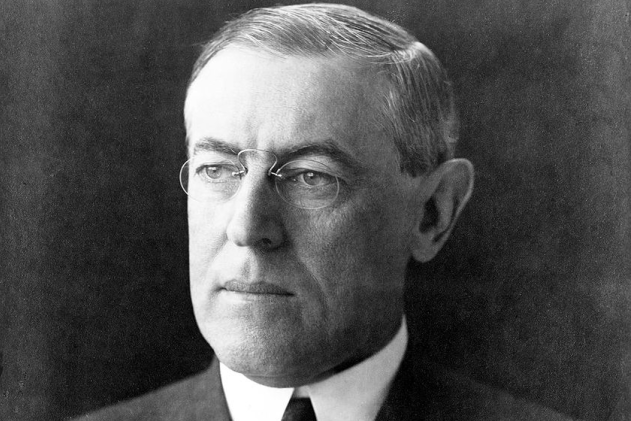
Woodrow Wilson was convinced that God had destined him to be president. With such a bold prediction, you’d probably expect Wilson to have led a charmed political life, but you couldn’t be further from the truth. It was a miracle that Wilson even became the Democratic nominee, let alone the president.
In 1912, the rank and file in the party favored Champ Clark of Missouri as their nominee. The party grandees preferred Judson Harmon of Ohio. There were at least two other candidates ahead of Wilson—Southerner Oscar W. Underwood and William Jennings Bryan. Fortunately for Wilson, they detested one another.
When Harmon cut a deal to give Clark his delegates, the paranoid Bryan became convinced that they were trying to stitch up his wing of the party. In retaliation, he threw Wilson his delegates. Wilson then hastily cut a deal for Underwood’s support, taking advantage of the confused atmosphere at the convention. He was the nominee 46 ballots later.
That still should have led him nowhere. At that point, the Republicans had held the White House for three terms. No Democrat who wasn’t Grover Cleveland had sat in the Oval Office since Andrew Johnson in 1869. Luckily for Wilson, the Republicans that year had a unique problem—Teddy Roosevelt.
Annoyed at President Taft, former President Roosevelt had decided to run as a third-party candidate. It was a disaster for the Republicans. Roosevelt’s Bull Moose Party split the vote. During the election, 27.4 percent plumped for Roosevelt, with 23 going for Taft. While over 50 percent of the electorate clearly wanted a Republican president, they couldn’t decide which one. With a united Democratic party behind him, Wilson hoovered up the remaining votes, becoming president more or less by default.
3 Bill Clinton Was Nearly Sunk By A (Non-Monica) Sex Scandal
During his time in office, Bill Clinton became synonymous with sex scandals. In 1992, though, his extramarital affairs were largely unknown to the public. At least, that was the case until a cabaret singer named Gennifer Flowers stepped forward and dropped an atom bomb on Clinton’s campaign.
It was the eve of the Democratic primary in New Hampshire. Clinton was the front-runner when Flowers spilled her guts to the press about their alleged 12-year affair. The effect was instantaneous. Clinton’s campaign went into damage limitation mode, roping in Hillary for an extended CBS interview to protest her husband’s innocence. However, the damage was done. By April 1992, The New York Times was reporting that Democratic voters had serious doubts about Clinton’s ability to win an election. The party’s superdelegates were refusing to endorse him, expecting Clinton to hand an enormous win to the Republicans.
As you’re probably aware, that didn’t happen. Even if voters might have been wary of Clinton’s character, Bush’s disastrous line, “Read my lips . . . no new taxes,” spoken two years before a massive tax hike, arguably annoyed them more. Bush lost the presidency, and Clinton took the White House.
2 Winston Churchill Should Never Have Been Prime Minister
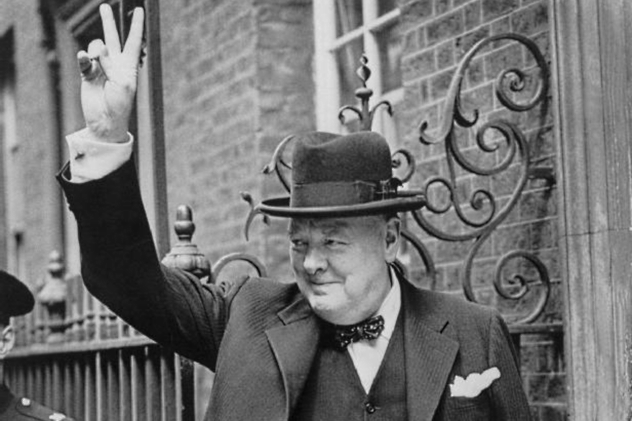
On a list of “history’s greatest leaders,” you’d expect to find Winston Churchill somewhere near the top. Frequently touted as Britain’s finest prime minister, his defiance of Hitler is the stuff of legend. But Churchill almost missed out on his chance to lead the country. In 1940, his own party thought he’d make a disastrous prime minister.
Although he had been hugely popular in the 1920s, during the 1930s, Churchill’s star had waned. He was seen as irrational on Indian independence (once calling for Gandhi to be publicly executed), brutal toward the Irish, too impetuous, and too quick to fight. Basically, he was like the loose cannon in a cop show, being constantly chewed out by his superior, Neville Chamberlain, for not doing things by the book. When Clement Attlee’s Labour party forced Chamberlain to resign by refusing to go into coalition with an appeaser, everyone expected Lord Halifax to become the next prime minister.
That he didn’t is lucky for Europe. In spring 1940, Halifax gave serious consideration to making a deal with Hitler. Churchill, only prime minister for three weeks at that point, swatted the deal down, making Britain’s decision to fight Germany irreversible. It’s thought that Halifax had stepped aside, thinking he could control Churchill better from behind the scenes. The jowly, cigar-chomping hero proved him wrong. In doing so, he secured his place in the history books.
1 Abraham Lincoln Was The Ultimate Dark Horse Candidate

Perhaps the only historic figure who could place above Churchill on a “greatest leaders” list, Abraham Lincoln is seen today as a nearly mythical hero. Go back to 1860, though, and things were very different. The future 16th president was seen as a provincial nobody who would probably lose the nomination race.
That he didn’t is thanks to the Republicans’ chosen location for their convention—Chicago. A native of Illinois, Lincoln was playing on home turf, and the local party went out of its way to help him win. Delegates from anti-Lincoln states were deliberately seated far away from those from key swing states. Thousands of admissions tickets were handed out at the last moment to Lincoln supporters, who were ordered to out-shout the competition.
Nonetheless, it was still a difficult victory. Senator William H. Seward was by far the favorite candidate and led the first two ballots. It wasn’t until Joseph Medill of The Chicago Daily Press and Tribune effectively bribed the Ohio delegates by offering their candidate “anything he wants” in a Lincoln administration that Honest Abe sealed the nomination. If it hadn’t been for this home turf advantage, it’s possible that we’d today know Lincoln only as a long-shot candidate who ran against future Civil War leader President Seward. Now there’s a weird thought.

